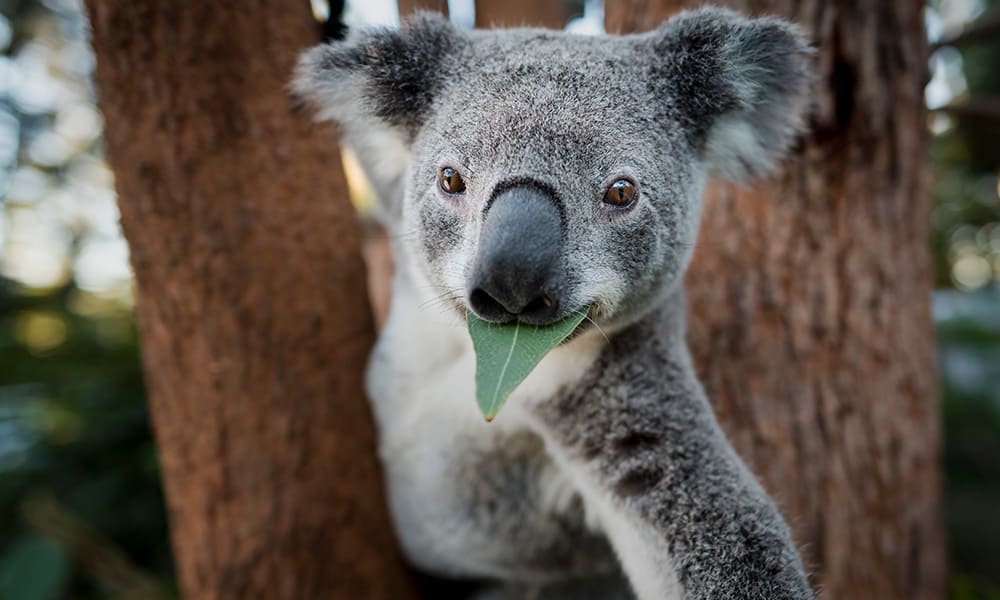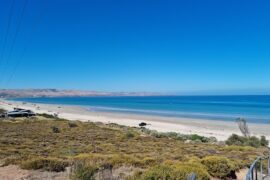Amazing Koala Facts Every Parent Should Share with Their Kids
Hello there, awesome parents and guardians! Are you ready to embark on a delightful journey through the eucalyptus forests of Australia with your little ones? Koalas are more than just cuddly creatures; they’re fascinating animals with unique characteristics that both you and your children will love discovering. Let’s explore together some incredible facts about these adorable marsupials and why they continue to captivate the hearts of people around the world.
A Peek into the Koala’s Habitat
Koalas are synonymous with the Australian bush. These furry friends spend their lives in the tall eucalyptus forests and woodlands of eastern Australia. Understanding their habitat is not only fun but also a stepping stone to teaching kids about ecological awareness and conservation. So, grab your adventure hats; we’re about to leap into the koala’s world!
Did You Know? Koalas are Marsupials, not Bears!
Despite being commonly referred to as “koala bears,” these creatures are not bears at all. Koalas are marsupials, which means they carry their young in a pouch. It’s a common misconception, but now you can impress your little ones with your animal kingdom smarts!
The Eucalyptus Diet of Koalas
One of the most fascinating koala facts is their diet. Koalas have a special fondness for eucalyptus leaves and can consume up to a kilogram in a day! But these leaves are tough and toxic to most other animals. So how do koalas manage this unusual diet? It all comes down to their extraordinary digestive system. Sharing this tidbit can be a mouth-watering way to engage children in zoology and digestion.
Super Sniffers: The Koala’s Powerful Nose
Koalas have an incredibly strong sense of smell, which they use to pick out the most nutritious leaves. Their distinctive large nose is a super sensor not just for food but for communicating with other koalas too. A fun activity is to have your children find foods using only their sense of smell – just like a koala!
Conservation Status: How Koalas are Faring
While koalas are a symbol of Australia, they face threats from habitat destruction and climate change. Learning about conservation status isn’t just for grownups; it’s important for children to understand how they can help protect animals like the koala. Encouraging an early love for nature can make a big difference for our planet’s future.
The world of koalas is as enchanting as it is educational. Whether it’s their marsupial classification, unique dietary habits, or conservation needs, these creatures offer a wealth of knowledge to be explored. By sharing these facts with your children, you’re not only spending quality time together but also sparking a lifelong appreciation for wildlife and the environment. So, what are we waiting for? Let’s continue uncovering the secrets of the adorable koala!
Continuing our adventure into koala-land will surely bring more smiles and knowledge to both you and your children. Keep an eye out for more koala facts and insights in the next segment of this wonderful exploration!

5 Things Parents Should Know in Preparing for Facts about Koalas
1. Getting to Know the Koala’s Lifestyle
Before diving into the facts, it’s helpful for parents to understand the basics of a koala’s lifestyle. These peaceful animals are largely nocturnal and spend up to 20 hours a day sleeping! They’re expert climbers and live almost exclusively in the trees. This can lead to fun bedtime stories or an animated discussion about different animal behaviors and adaptations.
2. Koalas Have a Special Language
Did you know that koalas communicate using a range of vocalizations? From snarls to belches, each sound has a meaning. Parents can prepare for koala facts by learning about these sounds and even playing recordings for their kids. Connecting with koalas through their unique “language” is an interactive way to spark interest in animal communication.
3. Understanding Threats to Koalas
It’s crucial for parents to grasp the environmental challenges koalas face, such as deforestation and bushfires, to properly engage with conservation efforts. Inspire empathy and awareness in your children by explaining how these threats impact koala populations. Hands-on activities, like planting a tree or creating koala artwork, can make these lessons relatable and actionable for kids.
4. Eucalyptus Leaves Aren’t Just Snacks
Koalas are highly specialized in their eating habits. Parents should be ready to explain that koalas eat eucalyptus leaves not just for food but also for water, as they rarely drink. This can be an excellent jumping-off point to teach about the adaptations animals make to thrive in their environments and the importance of biodiversity.
5. Prepare for Cuteness Overload but Teach Respect
Koalas are undeniably adorable, but they are also wild animals. Preparing to share koala facts with kids includes emphasizing the importance of respecting wildlife. Encourage children to admire koalas from a distance and nurture an attitude of protection towards these creatures and their habitats. Embracing this balance is key to fostering a healthy respect for nature.
Armed with these tips, parents can craft an engaging and thoughtful learning experience about koalas for their children. Fact-finding can be a fun family activity that builds a foundation for a lifetime of nature appreciation and stewardship. Let’s hop over to the next branch of our koala journey, shall we?
For more great fun click here. For more information see here
Disclaimer
The articles available via our website provide general information only and we strongly urge readers to exercise caution and conduct their own thorough research and fact-checking. The information presented should not be taken as absolute truth, and, to the maximum extent permitted by law, we will not be held liable for any inaccuracies or errors in the content. It is essential for individuals to independently verify and validate the information before making any decisions or taking any actions based on the articles.




